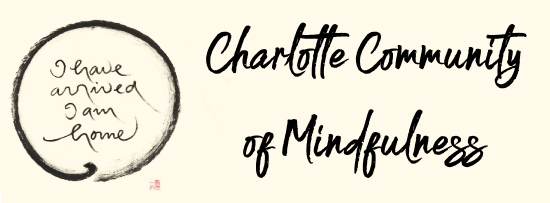Dharma Sharing Guidelines
Our weekly gatherings usually include Dharma Discussion, which differs from many ordinary conversations. Dharma Discussion provides a chance for us to connect, to share our practice experiences, and to deepen our examination of the Buddha’s teachings as applied in life. The guidelines below are drawn from How to Enjoy Your Stay in Plum Village and the Blue Cliff Monastery guidelines. We offer them here to help friends understand the nature of our sharing so they may participate comfortably and benefit from the discussions. They are intended as guidelines to support our practice, not hard and fast rules.
Dharma Discussion (Sharing) is an opportunity to benefit from each other’s insights and experience of the practice. By practicing deep listening while others are speaking, we help create a calm and receptive environment. By learning to speak out about our happiness and our difficulties in the practice, we contribute to the collective insight and understanding of the Sangha.
- Please practice conscious breathing during Dharma Discussion in order to be fully present.
- Share based on your own experience of the practice rather than abstract ideas, theoretical topics, or purely academic study.
- To speak, we form a flower bud with our hands and bow (or use another gesture, perhaps hand on our heart). We will not be interrupted, so we let the Sangha know when we are finished by bowing/gesturing again.
- Allow space after someone speaks rather than bowing in immediately after the speaker ends. Enjoy a few conscious breaths between listening to someone and bowing to speak next. This pause helps each of us fully receive the last sharing and be present to listen to the next person.
- You may like to say your name before speaking. This can be welcoming for newcomers and refresh other friends memories.
- We speak to the entire circle, sharing our joys and difficulties, while speaking from our heart and trying not to rehearse.
- Avoid giving advice, even if it is asked for.
- It’s helpful to use the pronoun “I”, instead of “You”.
- If we ask a question, it generally will not be directly answered. (Practical questions — such as “Will the Sangha meet on Thanksgiving?” — are sometimes the exception and may be answered during the circle or afterward.) Presenting a question can be useful even when not answered directly. It may allow the speaker to explore the question more openly and mindfully. And the presence of a question may invite others to reflect on the question in their own practice. Any responses to a question should reflect our own practice experience with the question, not present possible “solutions” for the questioner. It’s okay to let a question sit in the Sangha energy.
- When we listen carefully to the collective wisdom of the Sangha, practical answers, inspiration, and insight can arise. Try to listen with an open, non-judging mind, in the spirit of Avalokiteshvara.
- Refrain from speaking a second time until everyone has had an opportunity to share. Some of us may need more time to be ready to speak. When one friend repeatedly speaks, it may not leave room for sharing by friends whose words come more slowly. Also be mindful of the length of your sharing in relation to the group size.
- All that is shared is confidential. After the session, we refrain from speaking to a person about what they said in the group without asking for their permission first.
